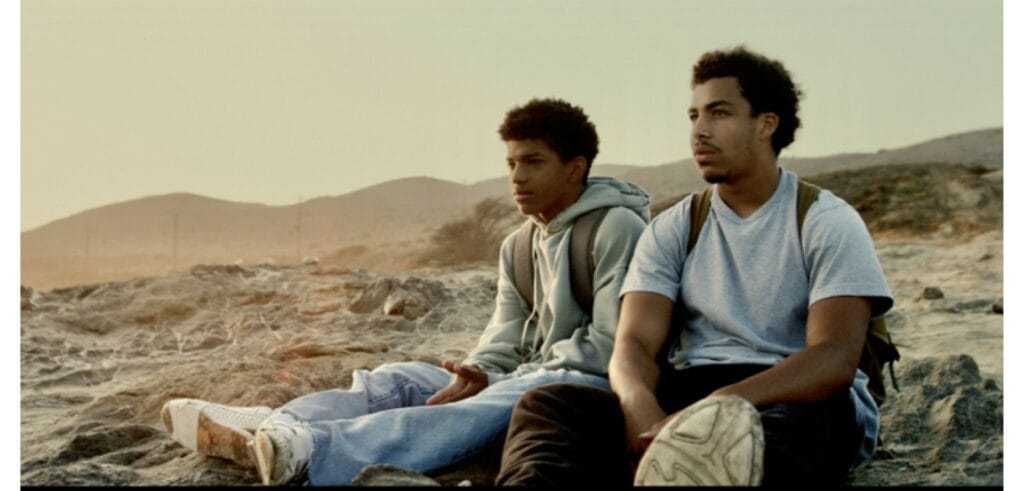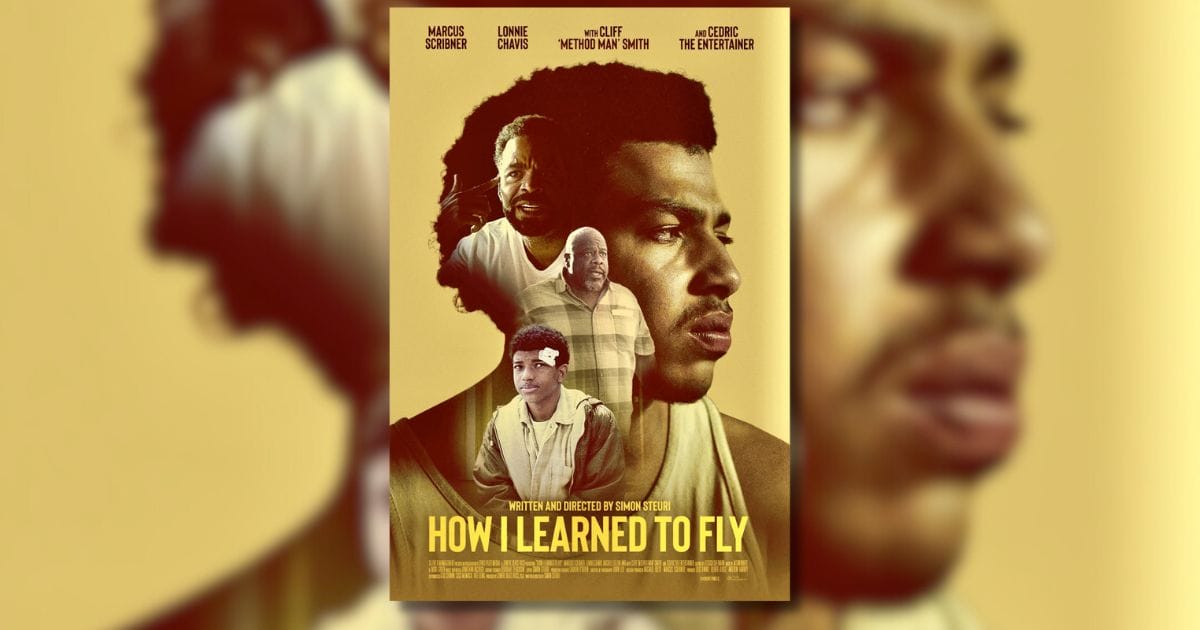‘How I Learned to fly’ poster
Two Black teenage brothers suddenly find themselves on their own after being mysteriously abandoned by their parents. Deeply haunted by the mental and physical abuse inflicted by their father (Wu-Tang Clan’s Cliff “Method Man” Smith), elder brother Daniel (Marcus Scribner, ABC’s “black-ish”) is determined to prevent their lives from falling apart.
He maintains a daily routine, works as a dishwasher and does his best to keep a roof over their heads. Younger brother Eli (Lonnie Chavis, NBC’s “This Is Us”) struggles to cope with the absence of his mother, leaving her voicemail messages in search of answers. Embarking on a journey of survival and self-discovery, they uncover moments of beauty, newfound meaning and enduring love that strengthen their bond despite the uncertain road ahead.
Featuring supporting performances by Cedric the Entertainer and Michele Selene Ang, “How I Learned to Fly” is a poignant story of determination and resilience in the face of profound adversity.
This film was kind of slow moving and confusing to me, even as I was rooting for some clarity. In the end, however, it hit me that this story is one that is probably realized across the country thousands of times over—an older brother working and taking care of his younger brother in the face of bill collectors and eviction notices.
The beginning shows a strained, and I would say, abusive family unit with the four family members at the dinner table. Shortly thereafter, the mother is no longer present, and the father seems to be out of the picture, too.

Eli seems to be selectively non-verbal and pining for his mom. He calls her daily on a cell phone that probably isn’t active, as the two brothers review their family “rules,” which include being kind to each other, among other rules. Daniel does the best he can, working as a dishwasher while they live in an old car after they are forced from the family home. Cedric the Entertainer plays a concerned neighbor who helps the boys with food and encouragement when he can.
It is finally revealed to Eli that his mom is dead, a victim of domestic abuse levied against her by Smith. Smith, more popularly known as “Method Man,” is a beast in this film, portraying an abusive husband and father, although only for a few minutes total. But as I mentioned, the film’s themes of poverty, homelessness, dome s t i c v iolenc e a nd abandonment are being played out everywhere within broken homes throughout this country.
Daniel is finally admitted into college, living in a dorm while Eli comes along.
It’s a sad but uplifting story, because Daniel keeps his family intact, although in a most threadbare manner. In the end, they recommit to one of their mom’s mantras—When your thought goes, your energy flows.
“How I Learned To Fly” is directed by Simon Steuri and executive produced by Scribner, who has come a long way since his “black-ish” days. Chavis made his first appearance, as I recall, in “This Is Us.”
The accompanying soundtrack has some somber cuts, including “My Mother’s Eyes” by Etta Jones and “Father I Stretch My Hands,” by T.L. Barrett.
The Film Movement project was screened at the recent Black Harvest Film Festival and will be in theatres on December 1.
Film Movement is a North American distributor of award-winning independent and foreign films, which is based in New York City. It has released more than 300 feature films and shorts culled from prestigious film festivals worldwide. In 2015, Film Movement launched its reissue label Film Movement Classics, featuring new restorations released theatrically, as well as on Blu-ray and DVD.
For a look at the trailer for “How I Learned to Fly,” visit https://tinyurl.com/4nzssex9.
-
Elaine Hegwood Bowen, M.S.J.https://chicagocrusader.com/author/elaine-hegwood-bowen-m-s-j/
-
Elaine Hegwood Bowen, M.S.J.https://chicagocrusader.com/author/elaine-hegwood-bowen-m-s-j/
-
Elaine Hegwood Bowen, M.S.J.https://chicagocrusader.com/author/elaine-hegwood-bowen-m-s-j/
-
Elaine Hegwood Bowen, M.S.J.https://chicagocrusader.com/author/elaine-hegwood-bowen-m-s-j/







